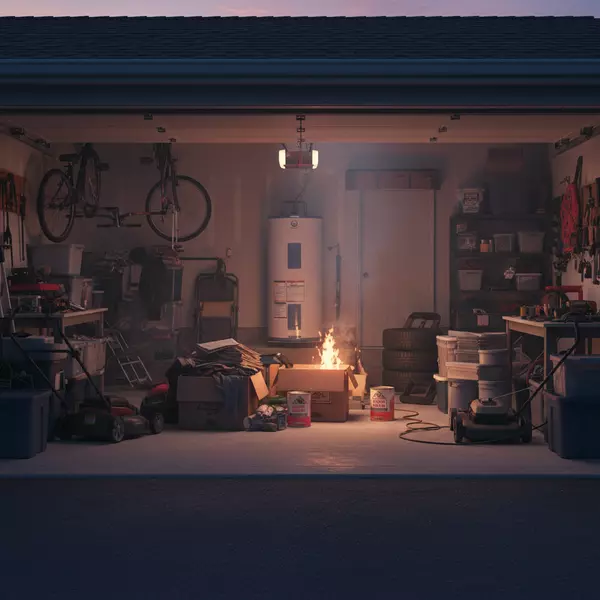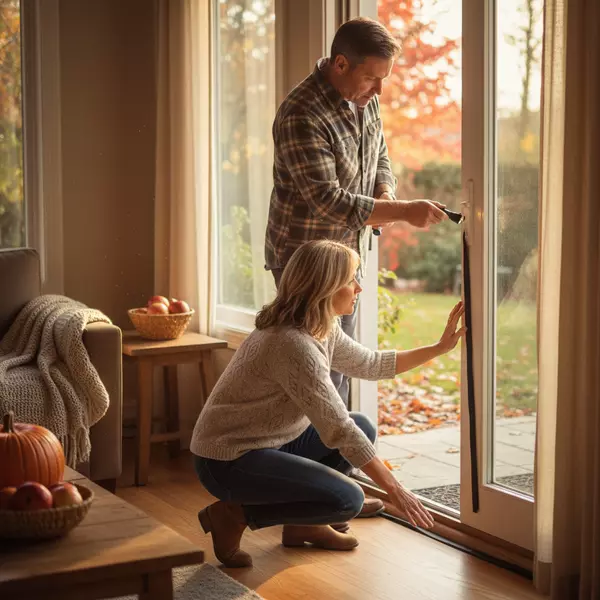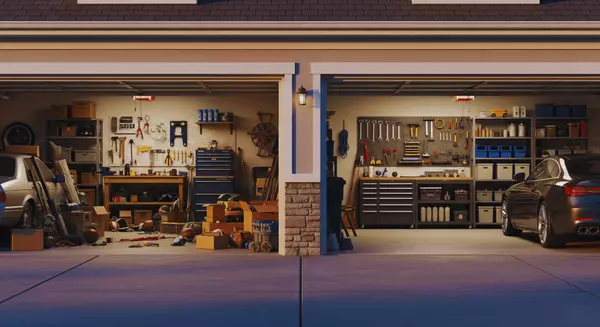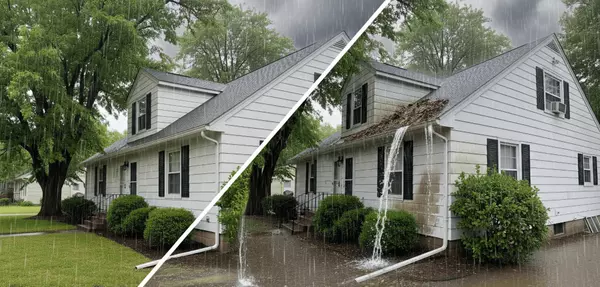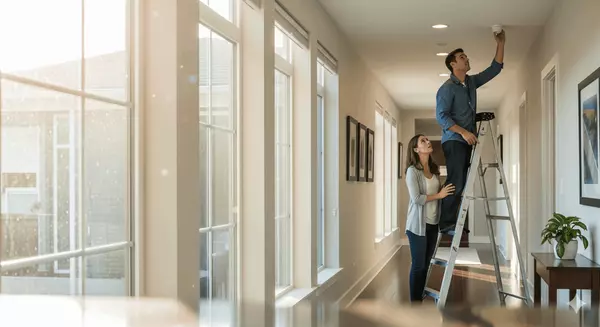Flammable Storage Mistakes That Put Families at Risk
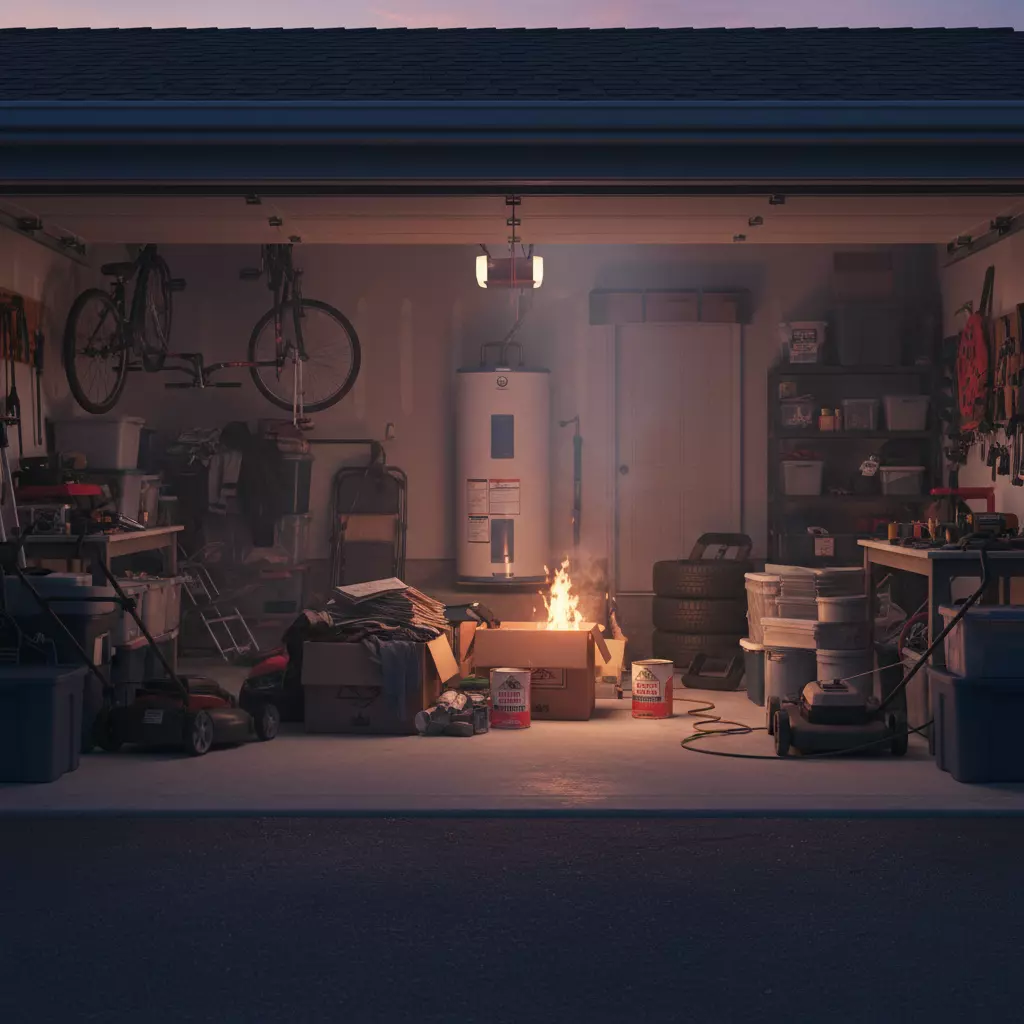
Is Your Garage a Fire Hazard Waiting to Happen?
Most homeowners see their garage as "extra storage," a place to stack cardboard boxes, paint cans, and gardening supplies. But when items like oily rags, propane tanks, and fertilizer are stored near a water heater or furnace, it's not just clutter. It's fuel for a fire.
The reality is, it only takes one spark, one vapor leak, or one overheated chemical to turn your garage into the most dangerous room in your home.
A Personal Wake-Up Call
A few years ago, during a home inspection, I spotted a gas water heater in a garage surrounded by cardboard boxes and open paint cans. The homeowner had no idea they were living with a major fire hazard.
More recently, I detected the faint smell of gas near my own water heater. Even as a risk-aware advisor, it was a sobering reminder: hazards can creep in quietly, and even the smallest leak can put everything at risk. This is why I'm so passionate about helping homeowners create a safe environment.
Why Garages Are High-Risk Zones
Garages are often high-risk zones for a variety of reasons, not just fire.
- Flammable Vapors: Gas-powered water heaters or furnaces have an open flame that can ignite vapors from gasoline, propane, and lighter fluid.
- Toxic Fumes: Chemicals like bleach, ammonia, and insecticides can leak or combine in high heat, creating dangerous fumes.
- Combustion Risk: Fertilizers and pool chemicals can be oxidizers that combust when exposed to heat.
⚠️ Building codes often require at least 18 inches of clearance between combustibles and gas appliances. Ignoring this isn't just unsafe—it could also make your home uninsurable.
The Overlooked Health Impact
It's not just about fire. Many chemicals commonly stored in garages release volatile organic compounds (VOCs), which can:
- Worsen asthma or allergies
- Trigger headaches, dizziness, or nausea
- Pose long-term risks to children, pets, and the elderly
Poor ventilation means these toxins can drift into your home, silently affecting indoor air quality. That "little extra storage" may actually be impacting your family's health every day.
The Insurance & Liability Factor
California homeowners are already facing stricter insurance renewals and rising premiums. Improper garage storage can make matters worse.
- Claim Denial: Fire or chemical damage claims may be denied if negligence is found.
- Policy Requirements: Insurers are increasingly requiring proof of compliance with fire codes before issuing or renewing policies.
- Liability: In the event of a fire, investigators will closely examine how and where combustibles were stored.
What's in your garage could impact not only your safety but also your financial protection when you need it most.
How to Spot the Danger: A Quick Guide
You can make your garage a safer place by following these simple steps.
- Gasoline & Propane: Always store these outdoors or in a ventilated, fire-safe cabinet. Never keep propane tanks indoors—even "empty" tanks can leak vapor.
- Paints, Solvents, Stains: Dispose of old cans properly. Keep the rest in airtight containers, away from heat sources.
- Corrosives & Cleaners: Separate these from other chemicals, food, or pet supplies. Do not store them near HVAC returns or water heaters.
- Fertilizers & Pool Chemicals: Store these in their original containers in a cool, dry area. Avoid stacking them high or exposing them to direct heat.
Pro Tips from a Risk & Safety Advisor
✔️ Quick Win: Take 15 minutes to walk through your garage. Relocate anything flammable or corrosive at least 18 inches away from heat sources like water heaters and furnaces.
✔️ Best Practice: Mount a multi-class fire extinguisher near the interior garage door for quick access.
✔️ When to Call a Pro: If your garage is poorly ventilated or you suspect gas leaks, contact a licensed contractor. Many local fire departments also offer free home safety inspections.
Protect What Matters Most
I've seen too many families unknowingly put themselves at risk because of what's hiding in their garages. A few minutes of prevention could protect your property, your health, and the memories you've built within your home.
Your garage might look organized—but is it truly safe?
👉 Store smarter, not riskier.
It's a small step that protects your family's future.
This information is for general guidance only. For specific advice on your home, please consult with a qualified professional like a contractor, fire marshal, or insurance agent.
Categories
Recent Posts
